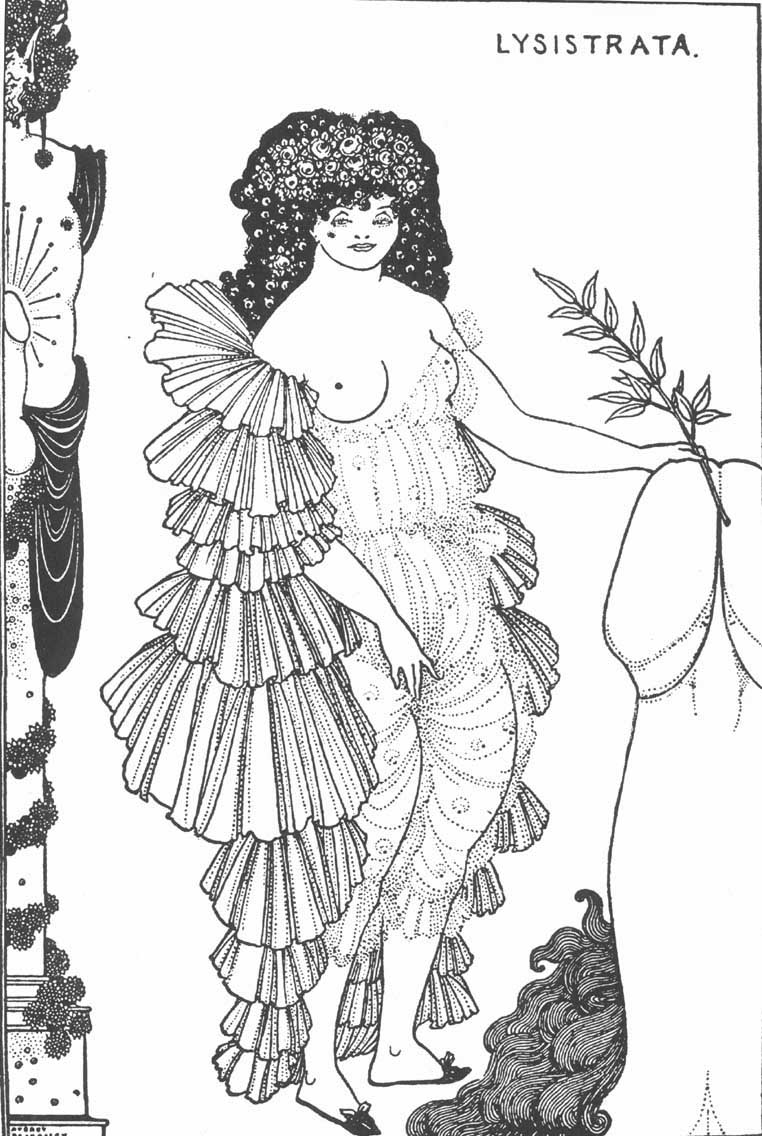Beardsley, Lysistrata, 1896.
Beardsley Lysistrata 1896
LYSISTRATA, the third and concluding play of Aristophanes’ War and Peace series, was not produced till ten years later than its predecessor, the Peace, viz. in 411 B.C. It is now the twenty-first year of the War and there seems as little prospect of peace as ever. A desperate state of things demands a desperate remedy, and the Poet proceeds to suggest a burlesque solution of the difficulty. The women of Athens, led by Lysistrata and supported by female delegates from the other states of Hellas, determine to take matters into their own hands and force the men to stop the War. They meet in solemn conclave, and Lysistrata expounds her scheme, the rigorous application to husbands and lovers of a self-denying ordinance–“we must refrain from the male altogether.” Every wife and mistress is to refuse all sexual favours whatsoever, till the men have come to terms of peace. In cases where the women must yield ‘par force majeure,’ then it is to be with an ill grace and in such a way as to afford the minimum of gratification to their partner; they are to be passive and take no more part in the amorous game than they are absolutely obliged to. By these means Lysistrata assures them they will very soon gain their end. “If we sit indoors prettily dressed out in our best transparent silks and prettiest gewgaws, and all nicely depilated, they will be able to deny us nothing.” Such is the burden of her advice. After no little demure, this plan of campaign is adopted, and the assembled women take a solemn oath to observe the compact faithfully. Meantime as a precautionary measure they seize the Acropolis, where the State treasure is kept; the old men of the city assault the doors, but are repulsed by “the terrible regiment” of women. Before long the device of the bold Lysistrata proves entirely effective, Peace is concluded, and the play ends with the hilarious festivities of the Athenian and Spartan plenipotentiaries in celebration of the event. The drama has a double Chorus–of women and of old men, and much excellent fooling is got out of the fight for possession of the citadel between the two hostile bands; while the broad jokes and decidedly suggestive situations arising out of the general idea of the plot outlined above may be “better imagined than described.”
;

